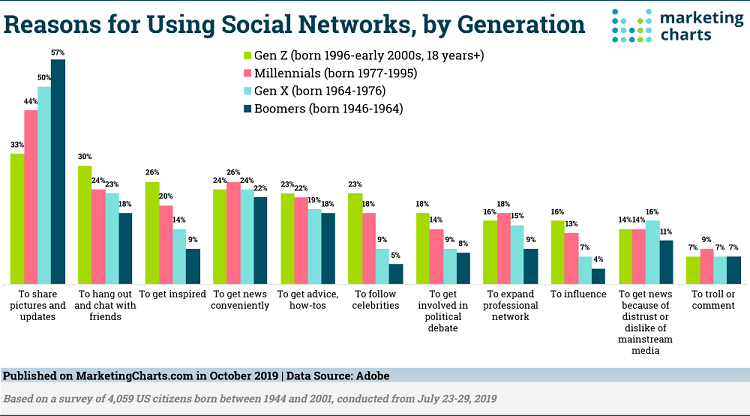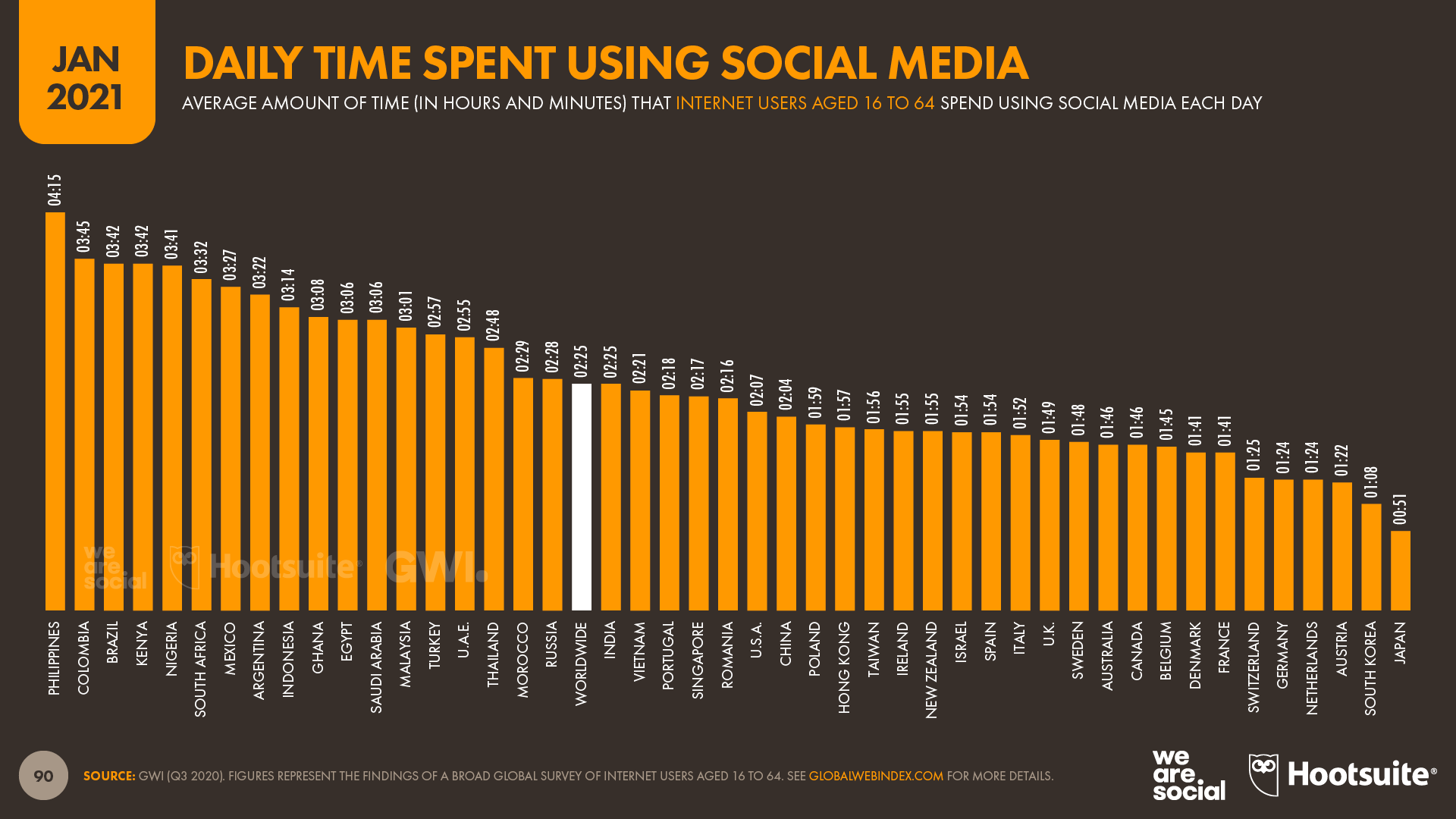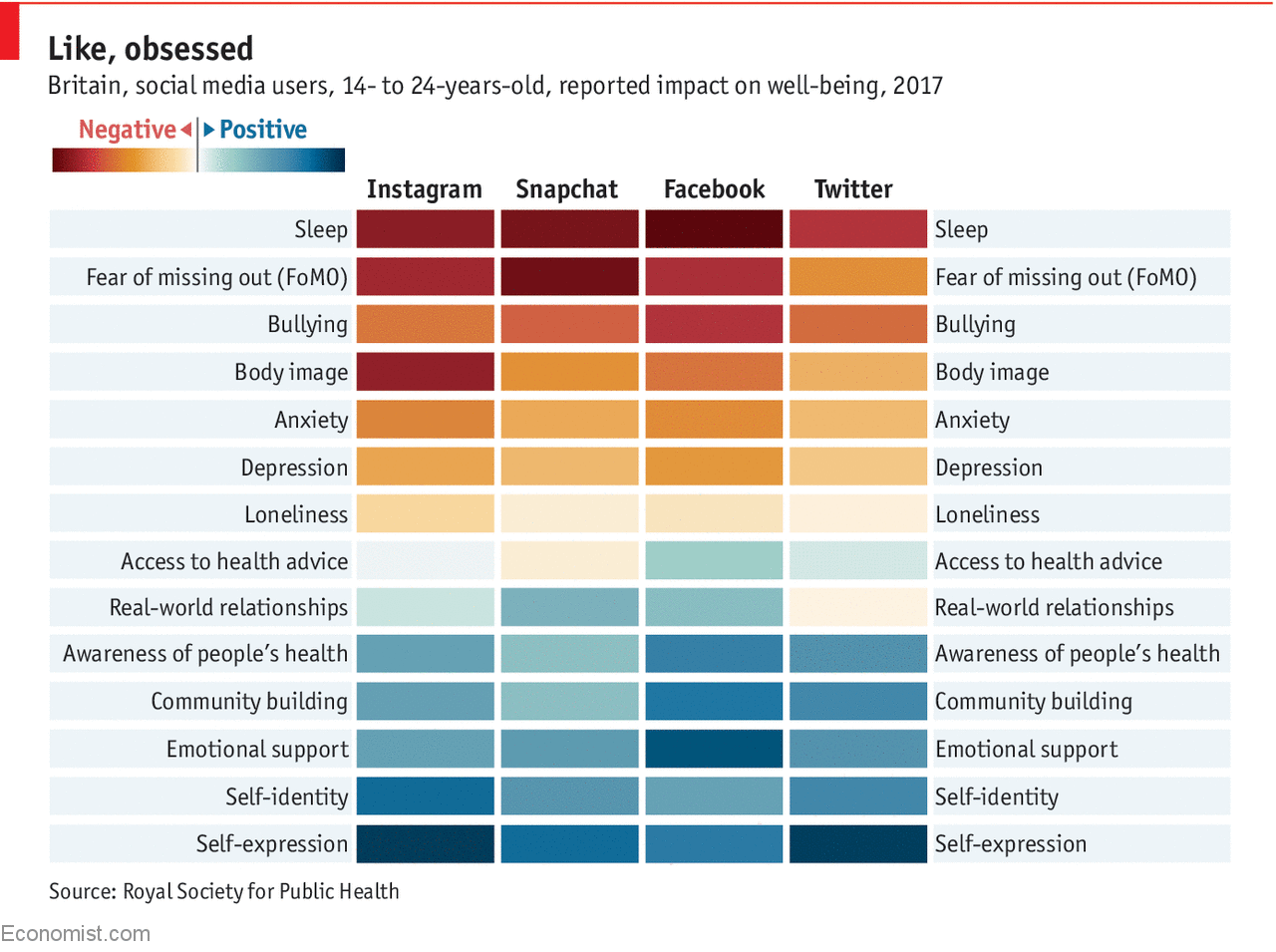Two Interviews - What is the Role of Social Media?
Hey!
I personally never know how to feel about social media. I have a few accounts and I browse content frequently, but I never share anything publicly. I feel that I’m at some middle ground between frequent social media users and non-users, and that interested me in getting perspectives from both sides of the spectrum.
This may be an atypical debate format, but here’s how this article is structured:
- I drafted social-media-related questions to ask two separate pairs of people, one pair with a larger social media following (and I’d say more in favor), and another with less interest in social media (hint hint: they write this blog).
- The interviews were separate and the groups didn’t hear of the other’s responses, so there are no rebuttals necessarily. But, hopefully you’ll gain some insight out of their two responses.
Note: the responses I’ve written are partially quoted and not full transcripts, but rather a summary of my recollections and notes from the interviews. Throughout are some resources and data for further context. Enjoy! Don’t mind me casually making fun of my friends.
Q/A:
1. (Background) How do you use social media?
- +: I mainly use it to connect with friends through messaging and posting/commenting on photos, but it also helps me get a sense of current events and things going on within my community. I follow organizations like College Board on Instagram and MTA on Twitter, which update me with information that’s useful in everyday life. And there’s plenty of humorous content on TikTok, which I use as well.
- -: For me, it’s useful for messaging and staying connected with friends/family when I can’t be with them in person. Each social media I use has its own purpose, like YouTube can be for education/music, while Instagram/TikTok are solely for entertainment. I’d say I only use social media when necessary to contact an individual or when it’s of casual interest to me.

Reasons to Use Social Media by Generation, via Marketing Charts
2. (Background) Summarize your opinion of the social media platforms you use.
- +: Instagram is the main social media I use. I feel it provides a lot of resources that help me find what I want and block out what I don’t want, and suggestions of posts and users are actually really helpful in finding new content. It’s a great platform overall, but of course there are moments when users post something offensive or hateful, which I feel is dealt with pretty well with the reporting system.
- -: The platforms are pretty well organized (“from a software development perspective”). It’s great how Twitter and Instagram include notifications of organizations and fundraisers to support, most recently with the war in Ukraine. But, I feel like not enough is done to verify content on most platforms. I hate getting tagged in spam posts, or getting suggestions of people I don’t know, and sometimes the “personal feed” aspect feels like an invasion of privacy.
3. What do you think the general opinion regarding social media is (in our country/culture)?
- +: It definitely depends on what cultural group you are a part of. Most of my friends think social media is a fun resource and we like to post photos when we go out. There are others that are part of different communities on social media, and see it as mostly informative and educational. Others don’t use it at all, which at this point in time feels like it only applies to older generations that didn’t grow up with it. In general, American culture is shifting towards pro-social-media as our generation popularizes it.
- -: Not sure of one concrete opinion because it really varies from person to person, but I think America is popularizing social media as I see that influence in other countries. Poland seems to be Americanizing and that has been coming with a lot of internet jokes and customs (selfies and hashtags, etc.). Japan also has a presence of social media, but comparatively, it’s a lot less significant in everyday life. So, social media seems to be a really essential part of American society to most.

Social Media Usage Time by Country, via Data Reportal
4. Any thoughts on followers/follower counts?
- +: I think they’re good and bad. On one hand, I do get the sense that some profile is high quality if it has a high follower count, and gaining another 100 followers always feels like a small success. It becomes a negative when people prioritize that over the content of social media pages, or it shapes what people think of others. I wouldn’t base my opinion of someone on their social media following, and it shouldn’t become the center of anyone’s life.
- -: I see how they can be helpful to track growth of an account, but to casual users who aren’t really trying to grow in public fame, they’re more negative than positive. If they are visible on a social media profile, they have a new importance to people. They also make that social media platform into something really fake, because some (or most) people measure some type of success with the number of followers they have, so they accept people they don’t know for the sake of appearing more successful. Having everyone else’s follower count available to you leads to comparisons, and ideas of who is more popular, and it’s best to keep private so it’s treated reasonably.
5. How much importance do you give to the content you see on social media?
- +: As with really anything on the internet, I can’t trust everything I see if information is from unknown sources. But, if I see a friend post or repost something regarding social issues or events, it becomes important to me and I value the opinion that they are sharing. The posts I create and share myself probably have the most importance to me, because I want to make sure I share content that I am happy with and that spreads a positive message. I don’t think social media should be the main source of news or political content for people, but it can certainly be a good resource for awareness and learning more.
- -: On platforms like Instagram/Facebook, pretty little importance. Regarding forms of information like infographic posts, they seem low effort and out of place to me. I see accounts post dozens of infographics on one social issue in just a day, and people I know repost them with no extra insight shared and forget about the issue within a week. Maybe they’re good for awareness, unfortunately they’re really the only way to reach most people at this point, but social media posts don’t really compare with other actions or forms of content you can create related to whatever you’re interested in; creating a YouTube video, or writing an article, or actually supporting the fundraiser you’re promoting is much more high-effort and impactful than sharing a semi-reliable post, especially when that’s all that most people are doing.
- My comments: I had directed this discussion towards the information graphics that are popularly shared on social media. From both sides, I’m getting the idea that infographics don’t really compare to other informational sources outside of social media. I assume that could still be positive for the purpose of spreading awareness, but the negative side argues that this awareness on the sharer’s side could also be fake.
6. Does social media feel like a safe platform for you? (Interpret however you please)
- +: I feel that if I’m in the right social media community, I do feel safe and accepted. Joining groups that share my common values or culture has been incredibly helpful and supportive for me in the past, and I feel like it’s almost easier to find a group online than it is in person. But of course, there are risks associated with the anonymity that exists online. People will share hateful opinions that they normally wouldn’t share in person, but that is usually responded to pretty well with account suspensions and by other users.
- -: On platforms where I can just simply view content, yes, but once I have an account, not especially. There are security issues with accounts being compromised and shady links being distributed. And privacy-wise, social medias track your IP and external activity, and almost everything you do can be traced back to you. We always hear about how everything on the internet is permanent, and I feel as though we have to be extremely careful to make sure we won’t regret anything we share if it is tied to our name. Then on the complete other side, if nothing is tied to our names, it’s also risky. Anonymity gives people confidence and permission to do whatever they want, even if it is hurtful, which can create dangerous harassment situations.
How Facebook Tracks Your Data, via New York Times
7. Does social media change personalities and/or opinions?
- +: Yes, there are plenty of people who act very differently online as compared to in person, which can be confusing and make some appear very fake. But I think that can sometimes be a good thing, in that it can help people develop their personality. People who are more shy can more easily find others like them through social media, and get introduced to new subcultures and interests that they wouldn’t normally have access to in person. But ultimately, if your true personality isn’t reflected at all in the real world, then I’d argue that you’re using social media in a negative way. As for opinions, I don’t think there’s a lot of direct persuasion via social media, but it’s good for awareness of certain topics and helping people develop their own opinions.
- -: Personalities, yes, that’s mainly why I don’t like social media. Among people I know, it is sort of just a popularity show and everyone wants to show off what they are doing, how they look, what they’re interested in, etc. when, if you were to do that in person, it’d seem snobbish. I think social media is normalizing the idea of subtly bragging about yourself, and it’s affecting how people think they should act. Regarding opinions, people do act like sheep with respect to the opinions of others, which ties back to social media not being safe. Any opinion that strays from the typically very closed-minded liberal ideas of social media (thinking of Twitter cancel culture) is automatically rejected and it seems that most will just blindly agree with whatever most say is right.
8. What rules do you think should exist across social media platforms?
- +: Major ones would be no bullying or harassment, like posting pictures without others’ consent, and no inappropriate content with offensive language or lewd images. I don’t think much should exist beyond that, since it’s important to maintain free speech and creativity with people’s posts.
- -: Definitely rules against any forms of harassment, and there should be filters for inappropriate messages or images. But, I think it’s hard to enforce such rules on large platforms like Instagram, when millions of posts are being made a day. Realistically, you can’t have every comment looked over before it’s posted, and having it removed later is ineffective because damage has already been done.
9. Any thoughts regarding social media’s effect on mental health?
- +: It has more of a negative effect than positive for sure. Keeping up with everything can be stressful and if you’re the subject of hateful messages or comments, that could definitely affect your self esteem and mental state negatively. Even if you aren’t, comparing yourself to others is more prominent on social media than in the real world and that can lead to dissatisfaction with oneself. But social media can also be an outlet for emotion, as people have personal accounts and finstas that are typically treated as safe spaces.
- -: Probably contrary to what you’d expect, it’s basically had no effect on my mental state. If you really care about social media and use it a lot, I think that’s a sign of it affecting you. I’d expect people to feel like they’re stuck in a loophole of relying on social media and going to it to reaffirm their thoughts and feel safe. I hear a lot of constant social media users say it’s awful for you, but they never really stop using it.

Social Media's Impact on Well-Being, via The Economist
10. Final thoughts?
- +: My main idea is that people ought to learn to use social media in a way that benefits them, since there is so much variety on social media and no one answer of how to use it.
- -: I feel like I better understand my reasons for not using social media, and there are certainly many possible ways it can be improved in order to limit social pressure aspects and security on the platforms.